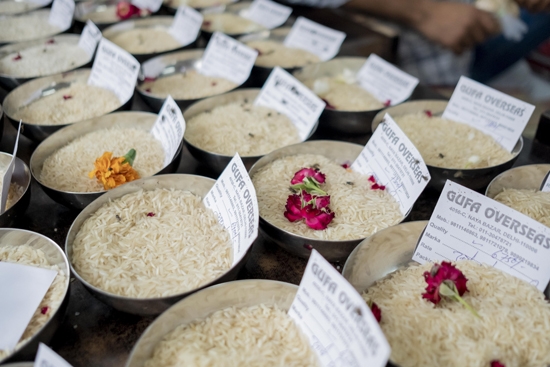
+4143 497 38 38
Office in Switzerland
+357 25 222 933
Office in Cyprus
+971 58 530 7194
Office in the UAE
eng
- eng
- deu

India’s Ample Rice Reserves Mean No Need to Panic Yet

27
Sep 2022
From Canada’s bumper wheat crop to new trade routes for US nut exporters, and more on the rice outlook, here’s a snapshot of recent key food stories from around the world:
Rice Watch
Billions of people depend on rice for their daily sustenance so when the news comes that top shipper India is mulling export curbs, one should pay attention. Rice is what’s been standing between us and a full-blown food crisis, as Bloomberg Opinion’s Javier Blas wrote earlier this year, and as worries over the state of grains supplies don’t go away, the premise is still largely valid. An impact from India’s restrictions won’t be as severe because broken rice shipments that the nation may cut make up less than 20% of its rice exports.
The choice of grain suggests the country is trying to address its domestic inflation without causing a global panic. Supplies are ample too. The Indian government’s grain reserves should allow for another year of record shipments, an analysis by Bloomberg Economics shows. Still, rather than restricting overseas sales, the country should focus on improving irrigation and crop yields, Bloomberg Opinion’s Mihir Sharma says.
COST RELIEF
Global food prices eased for a fifth month in August thanks to a seasonal uptick in supplies and signs of weaker demand, a United Nations’ price index showed today. Farmers in the northern hemisphere are just harvesting wheat, with Russia and Canada hav ing a good growing season. Still, it may take a while before consumers squeezed by inflation feel any impact. When it comes to supplies, Canada’s bumper crop may be difficult to ship because of snags in the country’s railway system.
On the subject of logjams, California’s $1 billion walnut industry is facing a massive backlog as it gears up for its busiest shipping season. Supply-chain bottlenecks, including a massive container ship congestion at California’s Port of Oakland, have cut into both foreign and domestic shipments and cost the state’s producers an estimated $1.3 billion in lost wholesale value this year alone. Fed up with delays at the port, nut exporters are looking to the East Coast for alterna tive trade routes.
LESS SUSHI, MORE BIG MACS
Japan's changing diet has made it increasingly reliant on imported food
Source: Ministry of Agriculture, Forestry and Fisheries
For decades, Japanese consumers have been eating less rice and fish in favor of more bread, meat and edible oil, and the country boasts the third-largest number of McDonald’s outlets after the US and China. But that’s led the country’s calorie-based food self-sufficiency ratio to slump to 37% in 2020 from 73% in 1965 — the lowest among major economies. Now, with tensions rising over the Taiwan Strait, shriveling rice paddies are seen as a food security threat and calls are growing to address it.
https://www.bloomberg.com/news/newsletters/2022-09-02/supply-chain-latest-food-crisis-averted

05
May 2023
333
Raw sugar and cocoa prices reach nearly 10-year highs – the smart cube comments
Prices of raw sugar and cocoa touched 10-year...


30
Apr 2023
274
Raw sugar prices at 11-year high as adverse weather increases supply woes
Raw sugar prices are trading at a...


31
Oct 2022
520
Reduced tariff set for transportation of sugar beet by rail in Kyrgyzstan
Reduced tariff set for transportation of sugar...


31
Oct 2022
324
Crop Ships Are Still Leaving Ukraine Despite Russian Move
Ships loaded with crops are sailing from Ukraine,...


30
Oct 2022
318
Grain market braces for price flurry as Black Sea corridor in doubt
PARIS, Oct 30 (Reuters) - Wheat futures...

Any questions?
